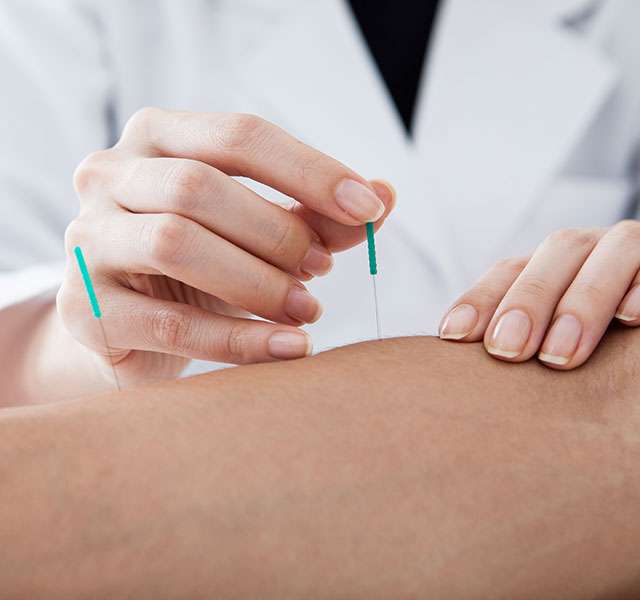Needles of Relief | Is Acupuncture Good for You
Needles of Relief | Is Acupuncture Good for You – Acupuncture, a pivotal component of traditional Chinese medicine, stands as a beacon of alternative therapy primarily aimed at pain relief. Through the precise insertion of needles at specific body points, it aims to balance energy flow, offering a unique approach to health and wellness.
Key Takeaways
- Effective for Various Pains: Acupuncture is widely recognized for its effectiveness in treating various types of pain, including muscle and joint discomfort.
- Low Risk: The procedure is associated with minimal risks, primarily when performed by certified professionals.
- Holistic Health Benefits: Beyond pain relief, acupuncture is suggested to enhance overall well-being, addressing conditions like stress and allergies.
[embedyt] https://www.youtube.com/watch?v=fb0miieP2Bo[/embedyt]
Understanding Acupuncture
Acupuncture operates on the premise that the body contains energy pathways known as meridians. By inserting needles into specific points along these pathways, the treatment aims to restore the flow of energy, purportedly leading to improved health and pain relief. While traditional Chinese medicine views acupuncture as a method to balance life force or chi, Western perspectives often interpret these points as places to stimulate nerves, muscles, and connective tissue, potentially boosting the body’s natural painkillers (Mayo Clinic).
Acupuncture for Good Health
Regular acupuncture treatments are suggested to offer cumulative benefits, making it a viable option for ongoing wellness rather than a one-time treatment for temporary relief. This holistic approach is supported by various health institutions and studies that suggest its effectiveness in not only managing pain but also in enhancing overall health by reducing stress and improving sleep patterns (Mayo Clinic Connect).
Practical Applications
Acupuncture for Muscle and Joint Pain
Muscle and joint pains are among the most common ailments treated with acupuncture. The technique is said to be effective in alleviating lower back pain, arthritis, and sports injuries. It works by stimulating the nervous system to release chemicals in the muscles, spinal cord, and brain, which then change the experience of pain or release other substances that influence the body’s internal regulating system (Mayo Clinic).
Safety and Side Effects
The safety of acupuncture is well-documented, with the main risks involving minor bleeding, soreness, or bruising at the needle sites. However, these are typically minimal and occur rarely when treatment is administered by a skilled and licensed practitioner. It’s crucial to discuss any underlying conditions, such as a pacemaker or pregnancy, with your acupuncturist as certain points can trigger labor or interfere with electronic devices (Mayo Clinic) (Mayo Clinic Connect).
Choosing the Right Practitioner
Selecting a competent acupuncture practitioner is as critical as the treatment itself. Prospective patients should verify the acupuncturist’s credentials, which usually include specific training and certification standards. In the U.S., non-physician acupuncturists are typically required to pass exams conducted by the National Certification Commission for Acupuncture and Oriental Medicine. It’s also advisable to consult with your healthcare provider to discuss the integration of acupuncture into your health regimen (Mayo Clinic Connect).
Acupuncture stands as a testament to the blend of ancient wisdom and modern science, promising a path to enhanced health and pain relief with minimal risks. As research continues to evolve, the scope and acceptance of acupuncture are likely to expand, offering a compelling alternative or complement to conventional medical treatments.

Enhanced Well-being and Systemic Health Benefits
While acupuncture is often heralded for its pain-relief capabilities, its benefits extend into general health and wellness. Regular sessions can contribute to better stress management, improved digestive function, and a more robust immune system. Patients often report higher energy levels and a greater sense of overall well-being after starting treatment.
How Acupuncture Aids in Stress Reduction and Immune Functioning
Acupuncture is believed to stimulate the body’s natural healing abilities, which can lead to enhanced immune response. Additionally, by reducing stress, which is a common contributor to weakened immune functioning, acupuncture can help maintain a healthier state. This dual effect makes it a potent tool for managing both physical and emotional stress (Mayo Clinic).
Acupuncture for Specific Conditions
Managing Respiratory Disorders
Acupuncture has been noted to be particularly effective in treating respiratory conditions like allergic rhinitis. By reducing inflammation and improving immune function, acupuncture can help alleviate the symptoms of allergies and other respiratory disorders, offering a natural alternative to conventional medications (Mayo Clinic).
Women’s Health Issues
In the realm of women’s health, acupuncture has been found beneficial for managing menstrual cramps and menopause symptoms. By targeting specific energy pathways associated with the reproductive organs, acupuncture can help regulate hormonal imbalances and alleviate associated pain and discomfort (Mayo Clinic).
Tables of Acupuncture Benefits
| Condition | Benefits of Acupuncture |
|---|---|
| Muscle and Joint Pain | Reduces inflammation and pain, enhances mobility |
| Stress and Anxiety | Lowers stress hormones, promotes relaxation |
| Respiratory Disorders | Helps reduce symptoms of asthma and allergies |
| Women’s Health Issues | Alleviates menstrual cramps and menopause symptoms |
Frequently Asked Questions
Q: How often should I receive acupuncture treatments?
A: The frequency of treatments can vary depending on the individual’s condition and response to acupuncture. Generally, it is recommended to start with weekly sessions and adjust based on how you respond to the treatment. For chronic conditions, a longer-term treatment plan may be necessary (Mayo Clinic Connect).
Q: Can acupuncture help with weight loss?
A: While acupuncture alone is not a weight loss solution, it can support weight loss efforts by helping to manage appetite, reduce cravings, and improve digestive health. It is most effective when combined with a healthy diet and regular exercise (Mayo Clinic Connect).
Q: Is acupuncture covered by insurance?
A: Coverage for acupuncture varies by insurance provider and plan. Some insurers may cover acupuncture for certain conditions, such as chronic pain. It is essential to check with your insurance provider to understand what is covered under your specific plan (Mayo Clinic Connect).
Learn more about the insurance coverage for acupuncture treatments at Mayo Clinic.
Acupuncture’s role in contemporary healthcare continues to expand as more people seek out natural, effective treatments for a variety of ailments. Whether you are dealing with chronic pain, stress, or just looking to improve overall health, acupuncture offers a promising, low-risk option that harmonizes the body’s internal systems.







